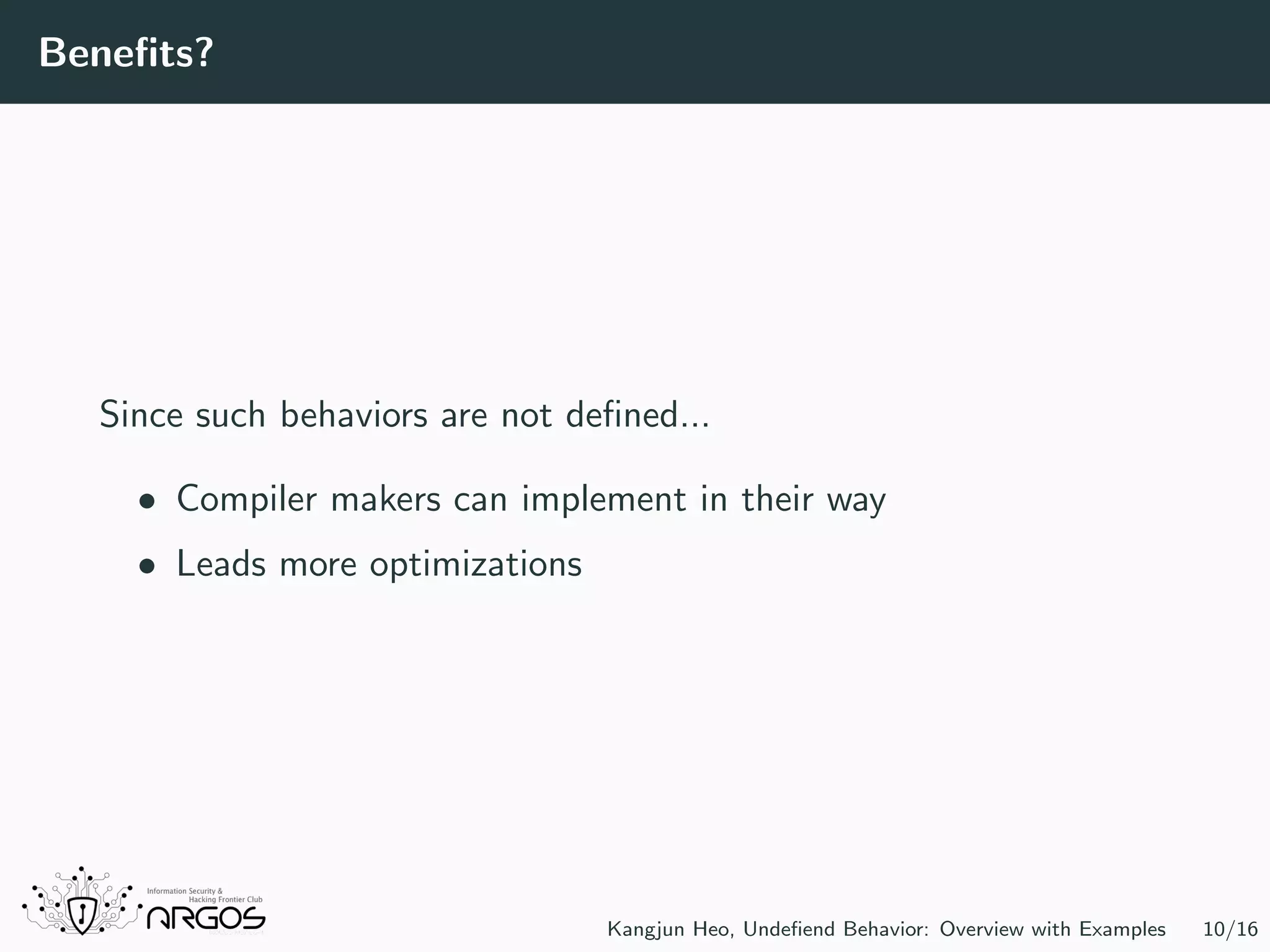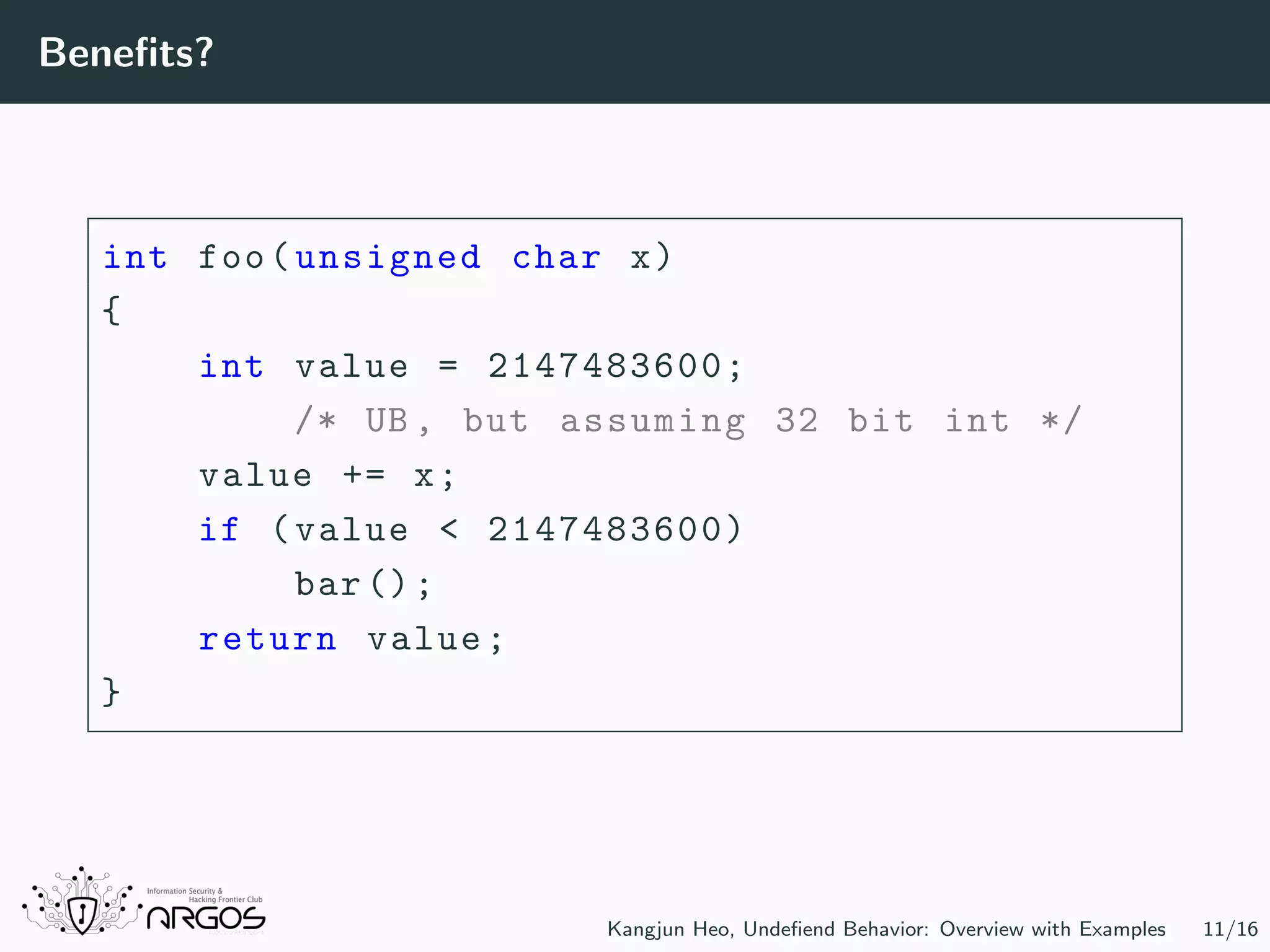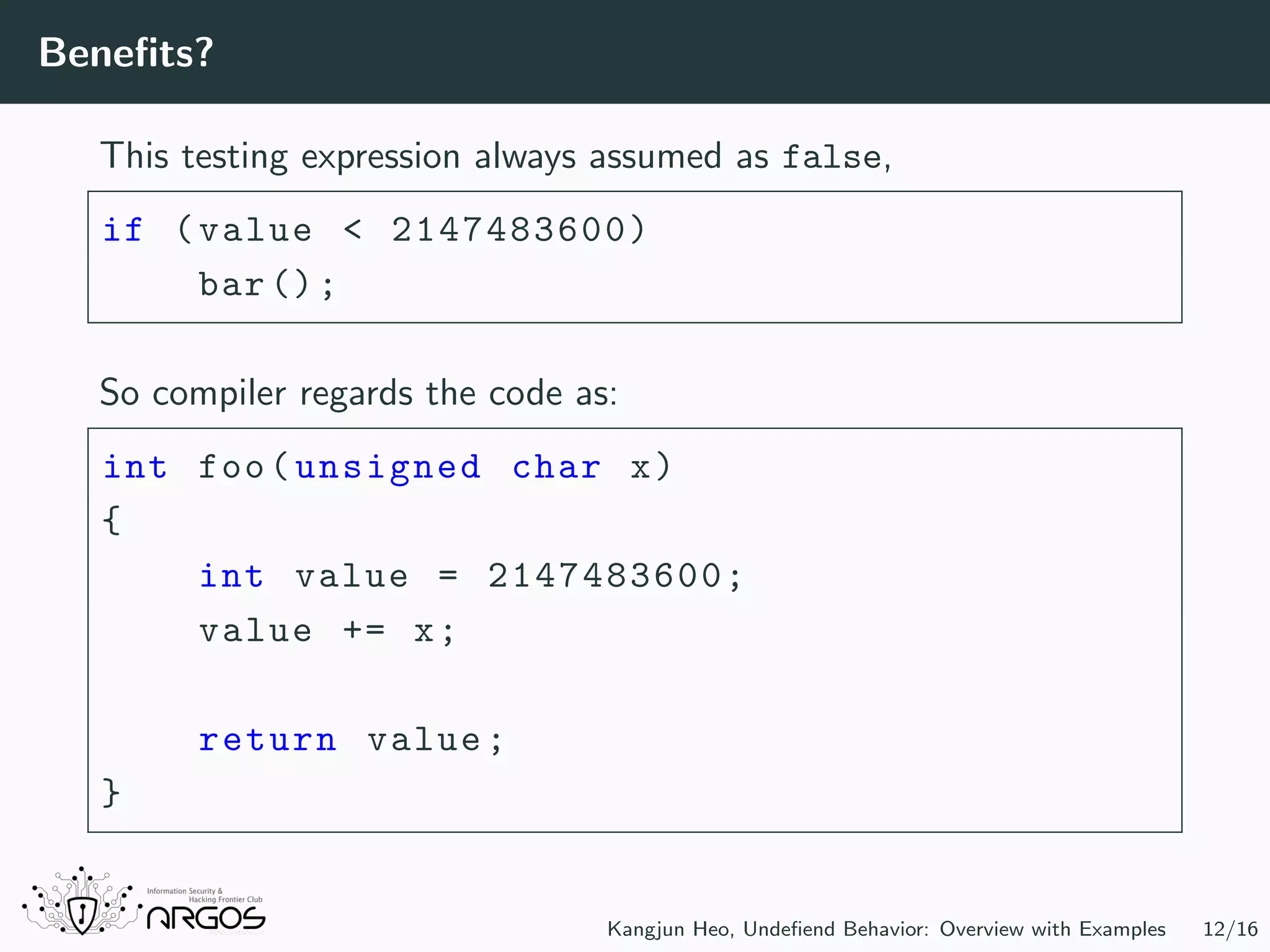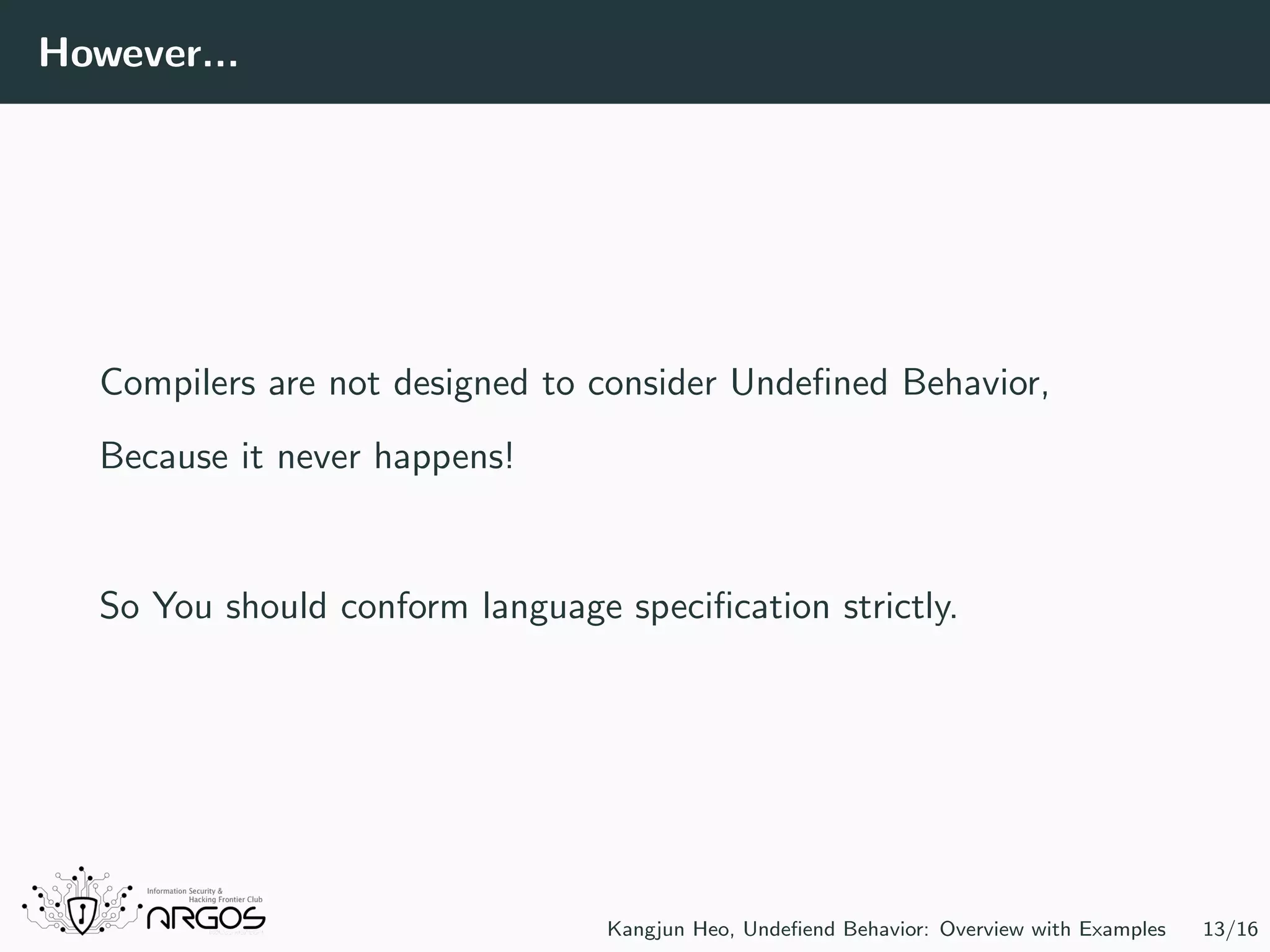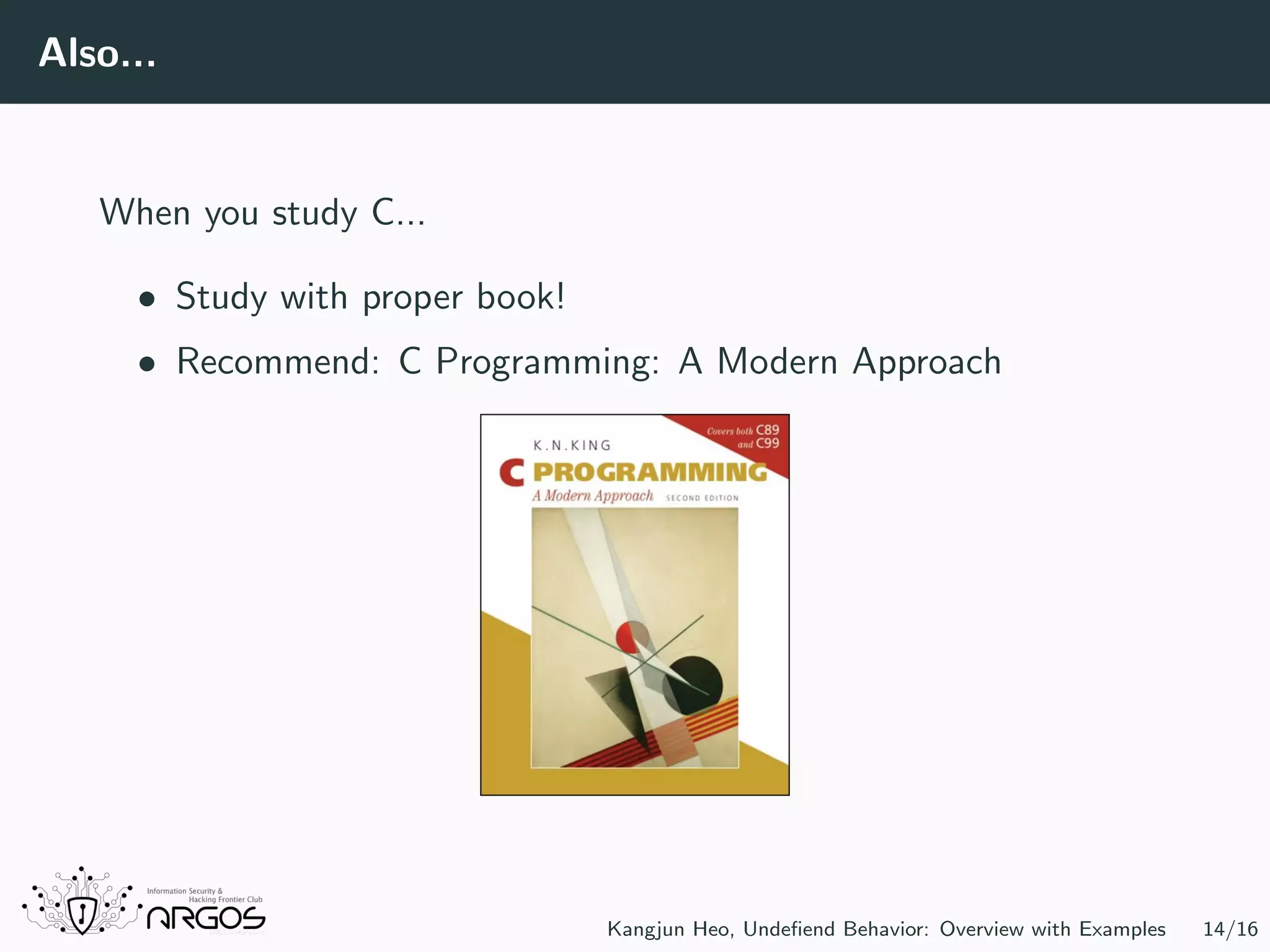The document discusses undefined behavior in programming languages like C and C++. It provides examples of undefined behavior, such as signed integer overflow, modifying string literals, out of bounds pointer operations, and dereferencing null pointers. While undefined behavior allows for compiler optimizations, programmers must strictly follow language specifications to avoid unintended consequences, as compilers do not account for undefined behavior. The document encourages studying programming languages from proper references to better understand specifications and avoid undefined behavior.
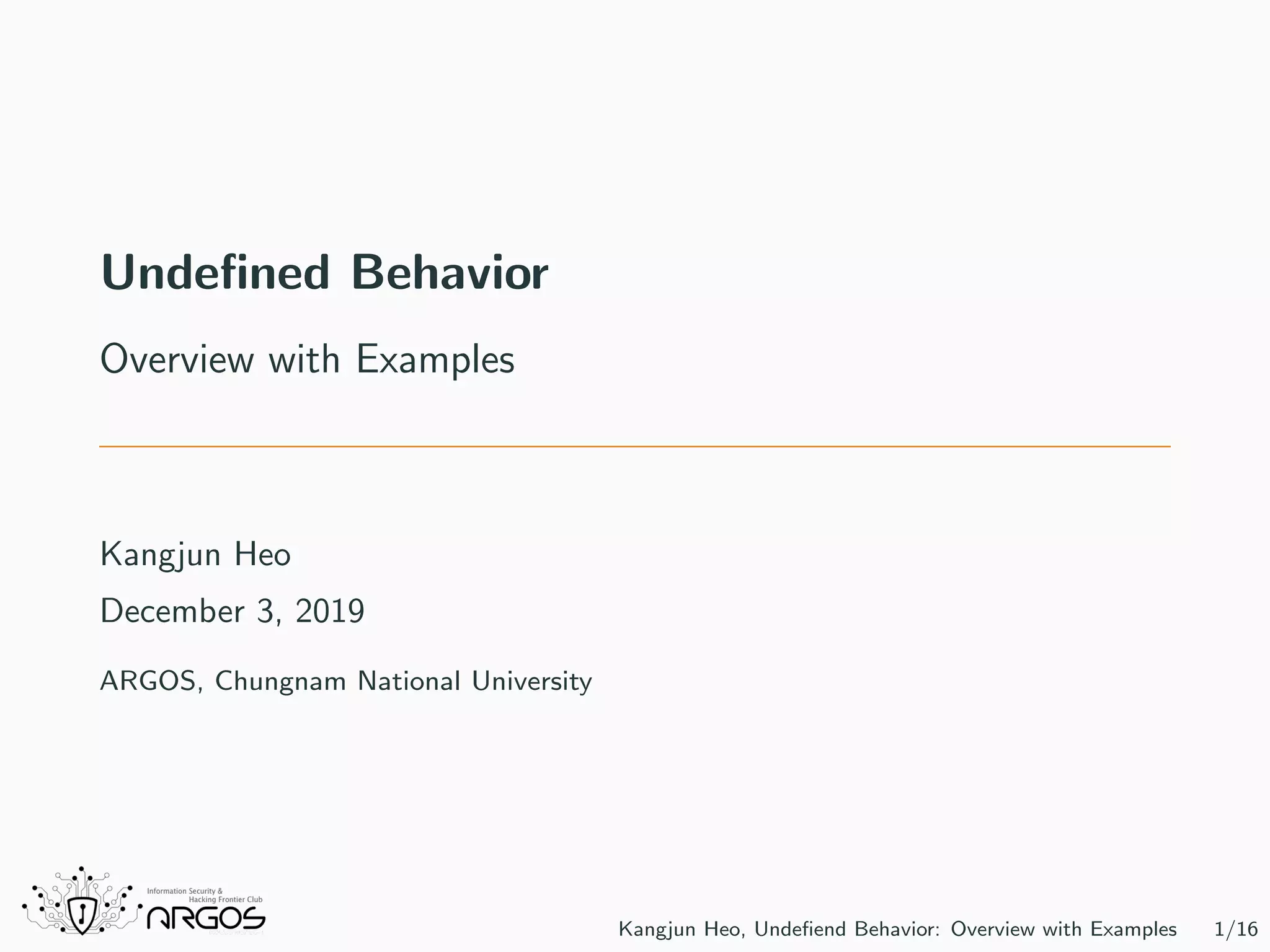

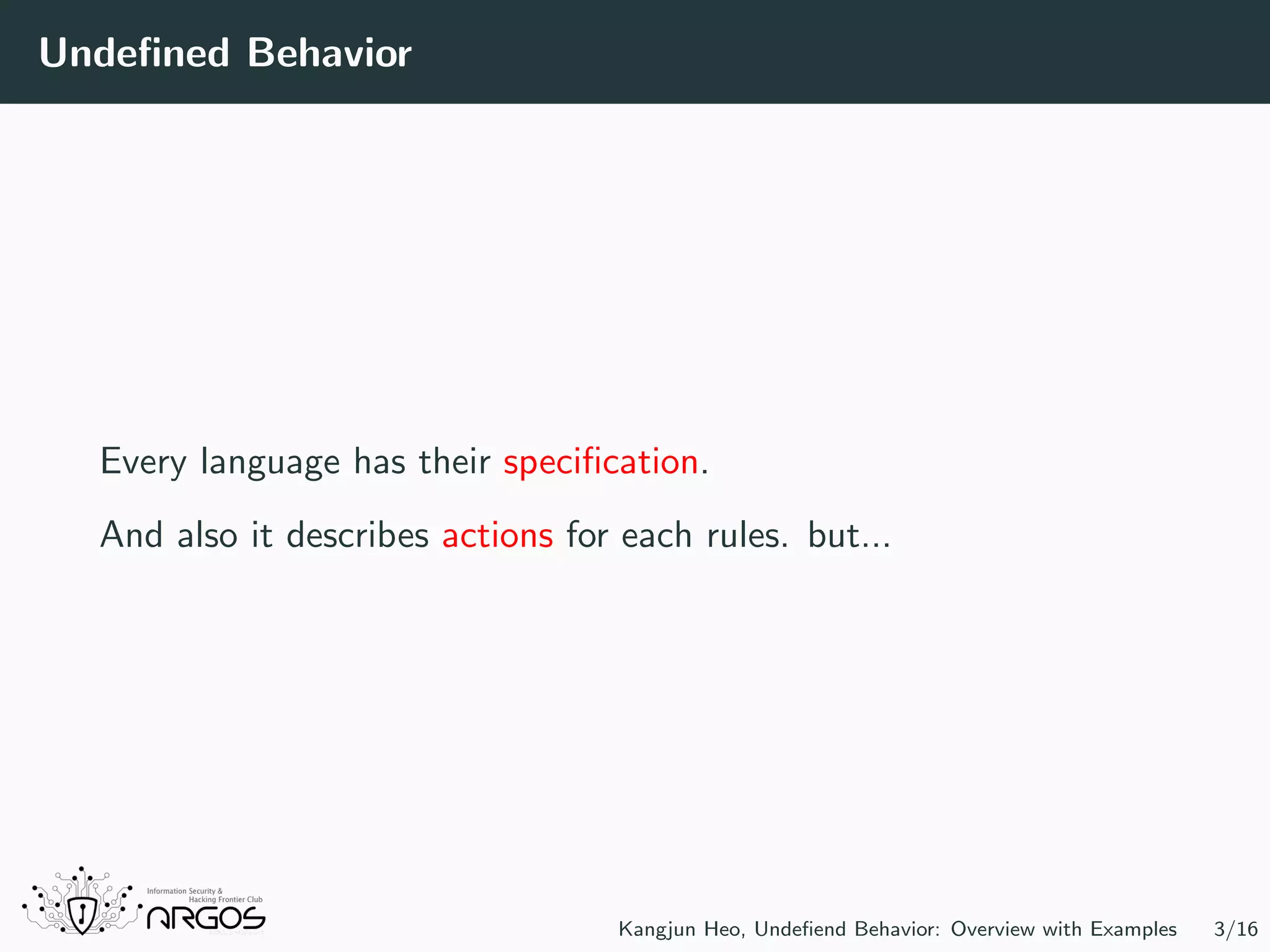
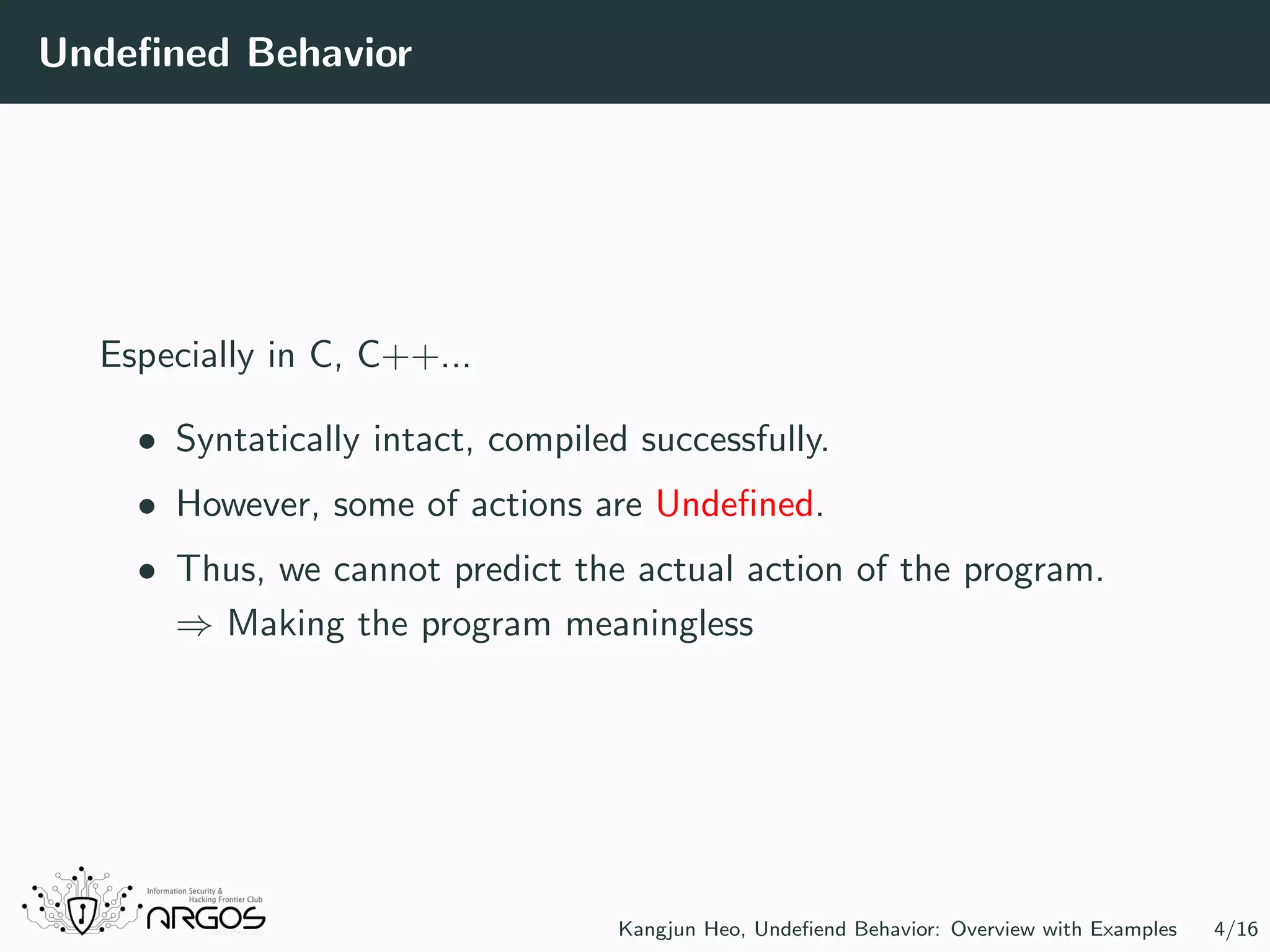
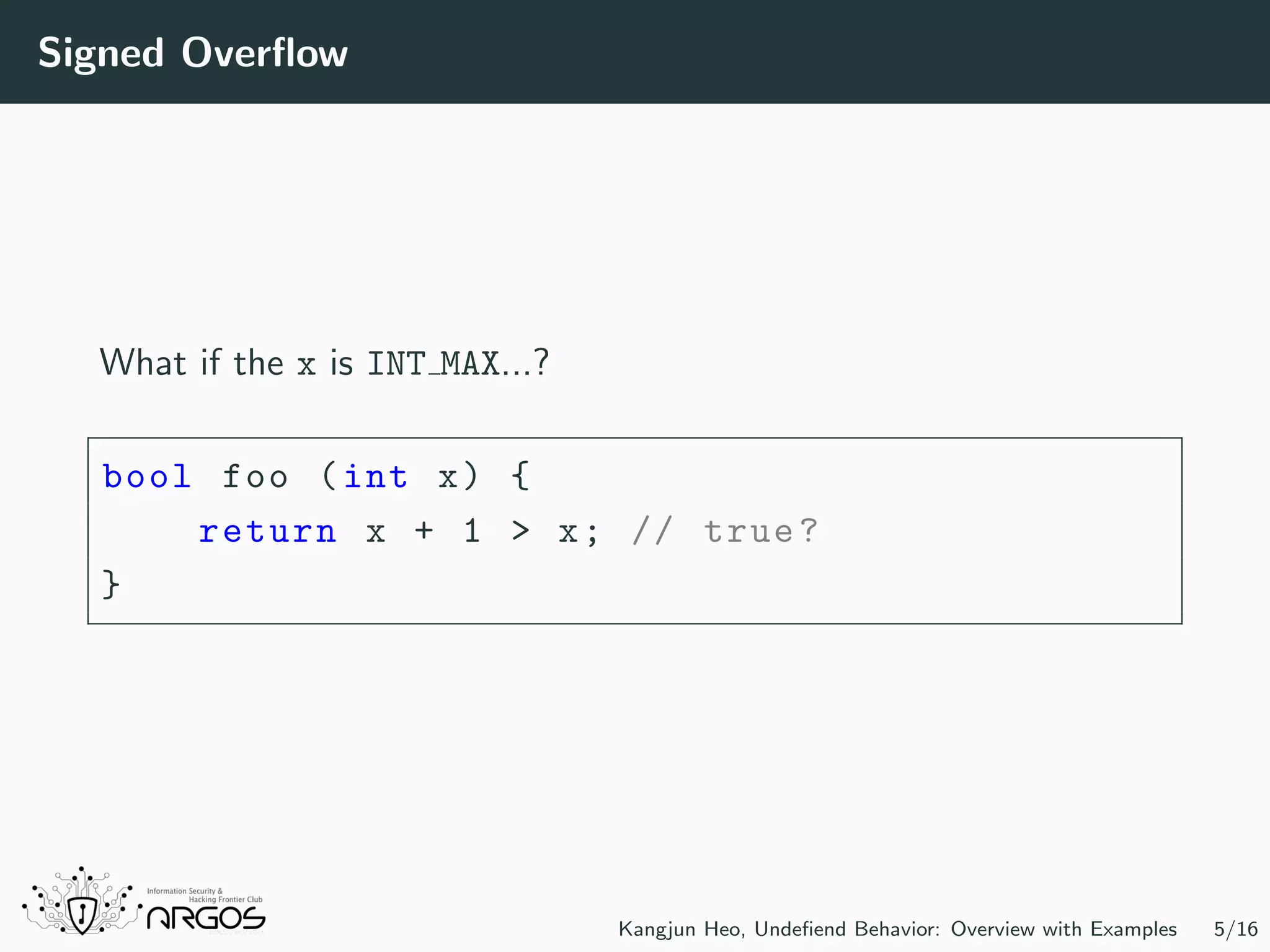
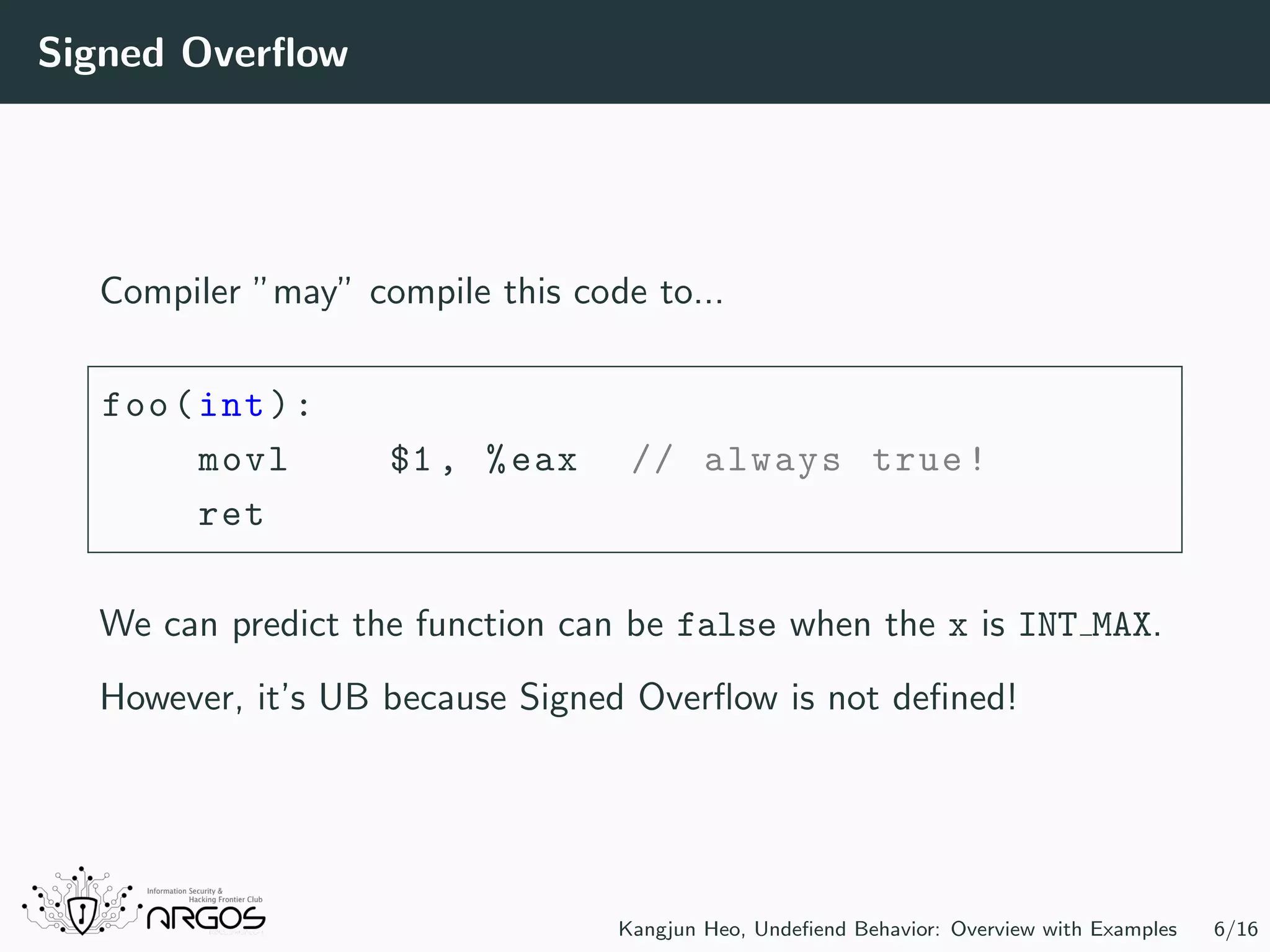
![String Literal Modification char* str = "4Rg0S"; str [2] = ’G’; // UB! This code is compiled to: .LC0: .string "4Rg0S" main: movb $71 , .LC0 +2(% rip) // SIGSEGV xorl %eax , %eax ret Kangjun Heo, Undefiend Behavior: Overview with Examples 7/16](https://image.slidesharecdn.com/ub-overview-191203110959/75/Undefined-Behavior-Overview-with-Examples-7-2048.jpg)
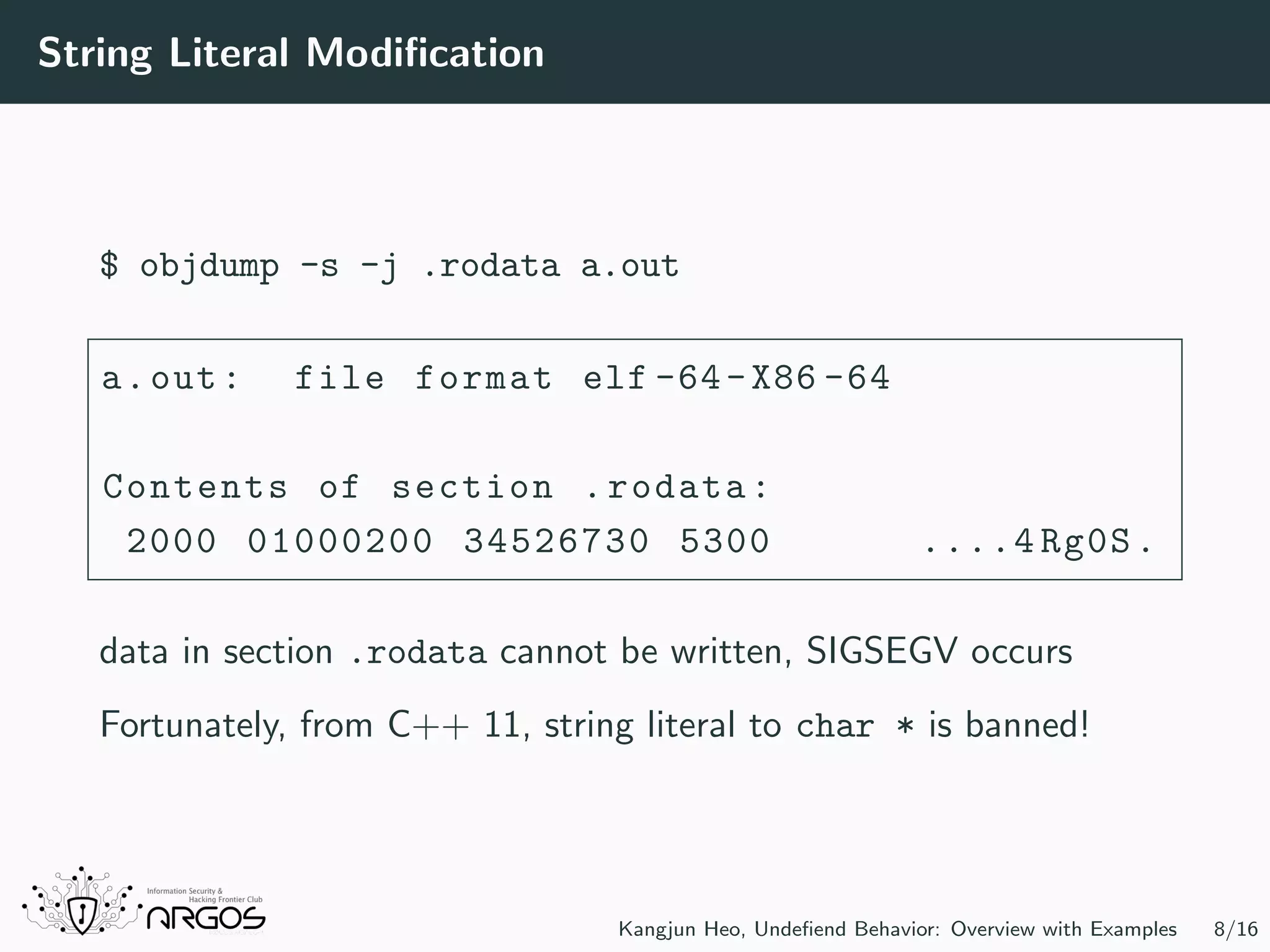
![Pointer Operations Out of bound indexing is also UB: int arr [4] = {0, 1, 2, 3}; int *p = arr + 5; // UB: out of bounds! Dereferencing Null Pointer is also UB: int *p = 0; // Null Pointer int a = *p; // UB: Dereferencing Null Kangjun Heo, Undefiend Behavior: Overview with Examples 9/16](https://image.slidesharecdn.com/ub-overview-191203110959/75/Undefined-Behavior-Overview-with-Examples-9-2048.jpg)
